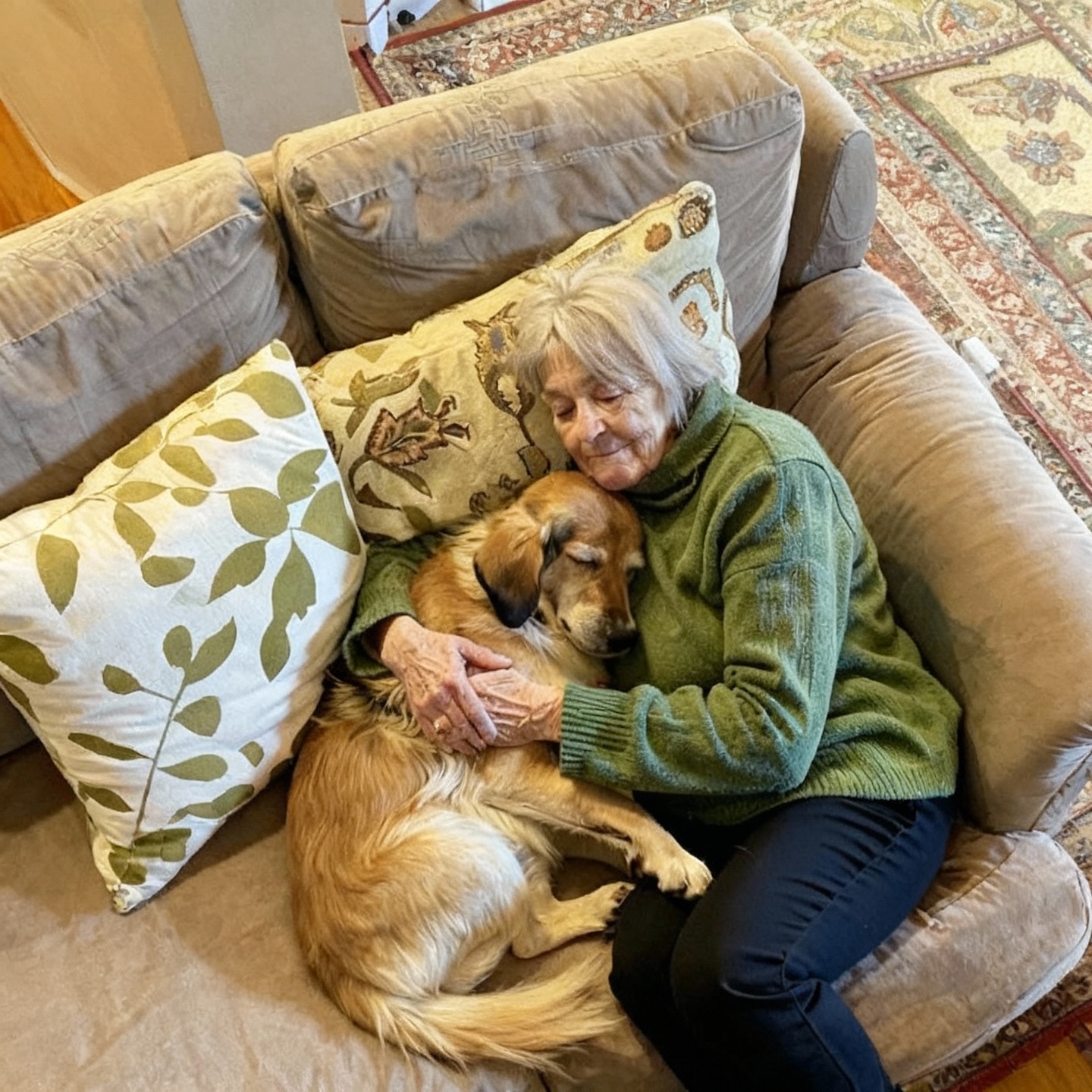When my grandmother died, we barely made it through the first wave of grief before the family turned on each other. One moment, everyone was reminiscing about her pies, her stubborn humor, the way she could make even the worst days feel bearable. The next, they were tearing through her house like contestants in a frantic game show where the prize was whatever they could grab first.
The chaos erupted the second the lawyer admitted he couldn’t find an updated will. That single sentence ignited something ugly in people who always acted close. My aunts and uncles scattered through her rooms, ripping open drawers, rummaging through boxes, arguing over who “deserved” her jewelry, her furniture, her barely-used china set. It was embarrassing. They behaved like her entire life had turned into a clearance sale.
Meanwhile, Daisy—my grandmother’s old terrier—trembled by her favorite chair, shrinking as voices rose around her. That tiny dog had been attached to my grandmother for over a decade. She wasn’t a belonging; she was family. And ironically, she was the only living creature in the house who wasn’t trying to take something.
So instead of joining the scavengers, I picked up Daisy and announced I was taking her home. No one objected. They were too consumed with grabbing anything that looked valuable. If anything, they seemed relieved I was taking what they considered useless.
At home, Daisy clung to me like the world might vanish if she let go. She slept pressed against my leg, followed me everywhere, grieving as deeply as I was. A few nights later, while brushing her fur on the couch, I heard a faint rattle from her red collar. At first, I thought the metal tag was loose. But when I held it under the light, I noticed a small seam behind it—something I had never seen before.
Curiosity nudged me to pry it open. Inside the hollowed-out space was a tiny folded piece of paper. My grandmother’s handwriting stared back at me: “To whoever truly loved me, look beneath the oak.”
I froze. It wasn’t cryptic—it was intentional.
Daisy looked up at me with those round, trusting eyes, almost as if she already knew what the message meant.
The next morning, I drove back to my grandmother’s house. The arguing had simmered into a cold silence. No one noticed me slip into the backyard. The old oak stood where it always had—massive, steady, woven into every childhood story she ever told. When we were kids, she hid little “treasures” in the yard: marbles, polished stones, handwritten notes. She always marked them with a flat rock. That habit stayed with her long after we outgrew the games.
Sure enough, there was a single stone at the base of the oak that didn’t match the others.
I knelt, lifted it, and dug with my hands. A few inches down, my fingers struck metal—an old tin box. The lid creaked open, revealing a velvet pouch and a sealed envelope.
Inside the pouch were antique gold coins—heavy, real, the type of thing my relatives would’ve fought each other bloody to claim.
But it was the envelope that made my throat tighten.
It was the real will.
Updated, signed, legally valid. She had left sentimental keepsakes—photos, quilts, books—to a few relatives. But the estate, the house, her savings, everything of substance… she left to me.
Her explanation was short but devastating in its honesty:
“You loved me without expecting anything. You showed up. You were kind. You brought me joy simply by being yourself. I trust you with everything I leave behind.”
When I handed the will to the lawyer, it was like setting off an explosion. My relatives erupted—yelling, accusing, insisting it was forged or planted. They couldn’t accept that the person they overlooked, the one who hadn’t fought over her belongings, was the one my grandmother trusted most.
The lawyer shut them down. The document was legitimate. The signature matched. The witnesses were confirmed. End of discussion.
They didn’t like that answer. Many of them cut contact immediately. They didn’t want to accept that Grandma left her life’s legacy to someone who didn’t treat her like a bank machine.
But the truth was simple: while they ransacked her home for treasure, the key to everything had been hanging quietly on Daisy’s collar. My grandmother knew exactly who would find it—and who wouldn’t.
Moving into her house was emotional, but it felt right. Daisy adjusted instantly, curling up in Grandma’s old rocking chair as if waiting for her return. I spent my nights going through her things slowly and respectfully—every photo album, every recipe card, every sweater that still carried her perfume.
In those quiet moments, her lesson became clear.
This wasn’t about money or possessions. It was about intention.
She wanted her home cared for, not gutted. She wanted someone who would water the garden instead of selling the rose bushes. Someone who would walk through her rooms with gratitude, not entitlement.
Daisy became the final guardian of that message. She lived two more peaceful years. When she passed in her sleep, I buried her beneath the oak—the same place where Grandma entrusted her final truth.
It was exactly where she belonged.
Now, when I sit under that oak, I finally understand what Grandma meant. Inheritance isn’t about what you can take. It’s about what you can honor. Daisy carried her message faithfully until the end.
Love, loyalty, kindness—those were her real treasures.
Everything else was just noise.
